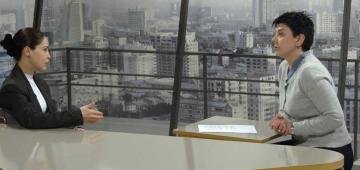 |
"Western Azerbaijan" - a state programIn the 5th grade history textbook of the Azerbaijani general education school, which came into the hands of Azerbaijanist Tatev Hayrapetyan, it is written that the Armenian SSR was created in the western part of the historical Azerbaijani lands. According to the authors of the textbook, Azerbaijanis who were forcibly displaced from their ancestral lands later formed the West Azerbaijan community, which appears before international organizations, so-called, for the protection of their historical heritage and the rights of the displaced population in West Azerbaijan. Anna Sargsyan talked about the state occupation programs of Azerbaijan with the candidate of historical sciences, Azerbaijanist Tatev Hayrapetyan. |
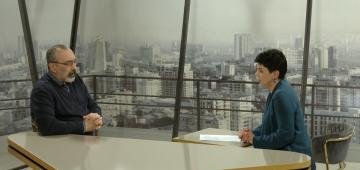 |
The new phase of the struggle for self-determination of Artsakh ArmeniansHow to talk about the right of self-determination of the Armenians of Artsakh today? To talk or not? To what extent are Armenia-Turkey relations interconnected with the Artsakh issue? Anna Sargsyan discussed the topic with Turkologist, former Minister of Foreign Affairs of the Republic of Artsakh Karen Mirzoyan. |
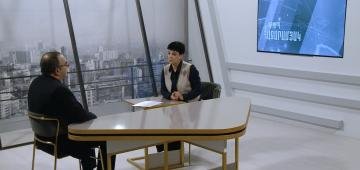 |
Artsakh's cultural heritage unprotectedIn 2023, as a result of the military occupation of the entire territory of NKR(A), more than ten thousand monuments of historical, cultural and world civilizational value created by Armenians over millennia are at risk of destruction or distortion of identity. Anna Sargsyan spoke with Lernik Hovhannisyan, former Minister of Culture of the NKR, Chairman of the Diocesan Council of the Artsakh Diocese, about the issues of protecting them from Azerbaijani aggression. |
 |
The civilizational crisis in the modern world and hybrid warsHow far can the political bar of "Man is the supreme value" be lowered? Does today's world have such a description? What is the civilizational profile of Armenia? What political identity does our state have? Anna Sargsyan discussed the topic with political analyst Hakob Badalyan. |
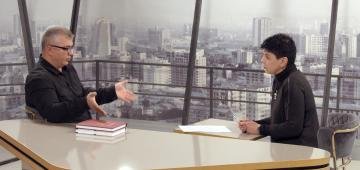 |
Azerbaijan continues the war in the regionAzerbaijanis have recently been circulating the thesis that Bartholomew, one of the founding apostles of the Armenian Church, preached and was killed in Baku. It turns out that Azerbaijan is also pursuing a policy of appropriation towards Georgia and Iran. Anna Sargsyan spoke about this manifestation of hybrid warfare with Gor Margaryan, a researcher at the Geghard Foundation and a candidate of historical sciences. |
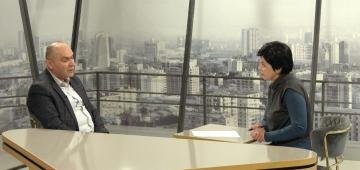 |
The technology of blaming the victimThe Armenian people, particularly the Armenians of Artsakh, have been fighting for the right to live freely and independently in the struggle for the right to self-determination for generations. That amount of sacrifice is considered excessive even today. What is the phenomenon of blaming the victim: a complication or a tactic? Anna Sargsyan discussed the topic with Vitya Yaramishyan, a candidate of psychological sciences, until 2023. Vice-rector of Artsakh State University. |
 |
Not to renounce the right of Armenians to self-determinationFebruary is the month of the 1988 Karabakh movement in the collective memory of Armenians. It was essentially a struggle for the right to self-determination. Did the fall of the Republic of Artsakh put an end to that struggle? Anna Sargsyan discussed the topic with candidate of legal sciences, attorney Taron Simonyan. |
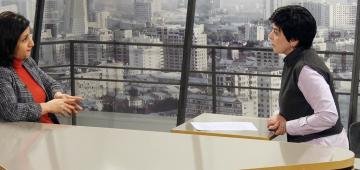 |
Not to abandon the complaints filed against Azerbaijan in international courtsA number of public organizations demand that the government and Nikol Pashinyan not abandon the complaints filed against Azerbaijan in international courts under any conditions and circumstances, and refrain from proposing to dissolve the OSCE Minsk Group. How is this dangerous for Armenia? Anna Sargsyan discussed the topic with Anna Melikyan, a legal expert at the “Protection of Rights Without Borders” NGO. |
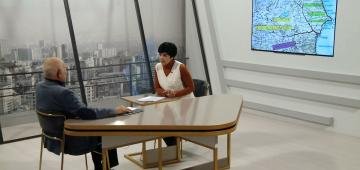 |
Are the terms Western Armenia and "Western Azerbaijan" comparable?What is the state called Azerbaijan as a historical and political reality, and what distortion of facts is the map of “Western Azerbaijan” the result of? Are the terms Western Armenia and “Western Azerbaijan” comparable? Anna Sargsyan discussed the topic with Honorary Doctor of the National Academy of Sciences, cartographer Ruben Galichyan. |
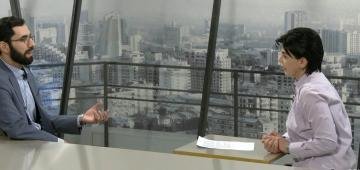 |
2024 in the "Third Millennium" pavilionOpening of the Mother Cathedral, blessing of myron, identity, history, education, rights of Artsakh citizens. These are the topics discussed by Anna Sargsyan in the "Third Millennium" pavilion during the second half of 2024. The best parts of the conversations are summarized in one video. |
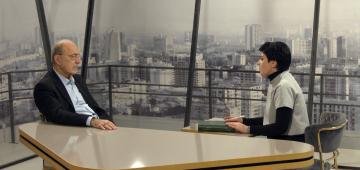 |
Artsakh by namesIn 2020, the monograph “Outlines of the History of Settlements of the Republic of Artsakh” was published, thanks to the diligence of Doctor of Historical Sciences Vahram Balayan. Today, the book also has great archival value, several copies reached Armenia in 2023. after the forced deportation of the Armenians of Artsakh. Anna Sargsyan hosted the author of the book, Vahram Balayan. |
 |
The well-being of Artsakh residents is a commitmentAs of January 2024, 115 thousand citizens were forcibly displaced from the Nagorno-Karabakh Republic. The forced deportation of Artsakh Armenians in 2023 was also a gross violation of cultural rights. The right to culture is the right to freely participate in cultural life, to live their normal lives in accordance with their own ideas and cultural practices. It is established as a fundamental right by Article 27 of the Declaration on Human Rights and Fundamental Freedoms. Anna Sargsyan spoke with cultural anthropologist Gohar Stepanyan about the problems of integration of Artsakh Armenians in Armenia. |

